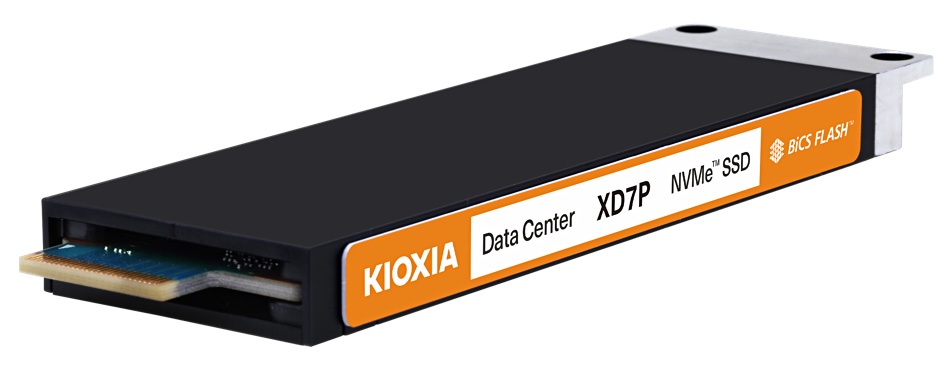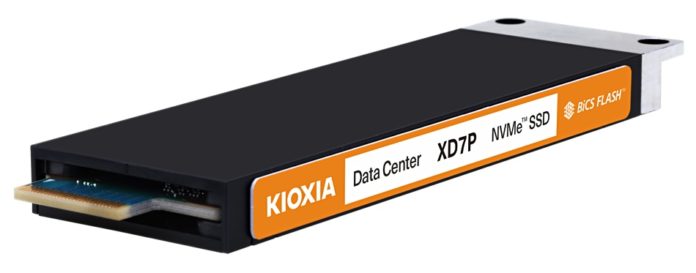Kioxia has announced OCP-compliant second-generation E1.S gumstick SSDs, but neglected to provide anything other than generic comparative performance data.
The datacenter-class XD7P products use fifth-generation BiCS flash with 112 layers in TLC (3bits/cell) format with 1.92, 3.8, and 7.68TB capacities. That is a doubled maximum capacity compared to the prior XD6 product.

Kioxia America’s Maulik Sompura, senior director of product planning and management, said: “Kioxia is pushing the envelope further with our next-gen XD7P E1.S NVMe and PCIe SSDs, which are equipped to support newly added, complex OCP features.”
We are not told what these features are, and no datasheet is available to list them. Sompura claimed Kioxia “has made significant strides in capabilities compared to previous generation drives – which can lead to a substantial TCO advantage for customers.” The XD6 was Kioxia’s previous E1.S drive.

Kioxia says the XD7P achieves “nearly 1.5x to 2x the sequential write performance and random read/write performance” of the preceding XD6 drive, which is a tad vague. The XD6 provides 850,000/90,000 random read/write IOPS, a 6.5GB/sec sequential read bandwidth and a lowly 2.4GB/sec sequential write bandwidth.
The XD7P’s sequential write bandwidth is at least nearly 1.5x better, implying around 3.6MB/sec, and its random read/write performance is also at least nearly 1.5x better. This means something like a minimum of 1.27 million random read IOPS and 135,000 random write ones.
This is pretty poor compared to Solidigm’s gamer/workstation-focused P44 Pro – an M.2 format drive with 512GB, 1TB, and 2TB capacities and the same PCIe 4 interface. It delivers 1.4 million/1.3 million random read/write IOPS and its sequential read/write bandwidth is 7.1/6.6 GB/sec respectively. The Kioxia XD7P is quite outclassed.
The XDP drive has three heat sink options – 9.5mm, 15mm, 25mm – and supports the OCP Data Center NVMe SSD 2.0 r21 specification. It supports 1DWPD for its five-year warranty period and has non-SED (Self-Encrypting Drive) and TCG Opal SSC SED options. Like the XD6, it has a two million hour MTBF rating.
A PCIe 5.0 version with maximum interface speed of 32 GT/sec (gigatransfers/second) per lane is under development. The PCIe 5 bus, with its 4GB/sec/lane bandwidth, is twice PCIe 4’s 2GB/sec/lane.
XD7P drives are sampling to select datacenter customers.








